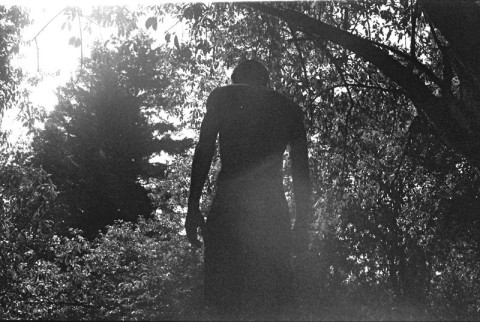In a hotel room out west, a man writes his children a letter. He begins by saying I’m sorry—sorry for leaving when they were young, sorry for never coming home to visit. He stops here and pictures their faces: Joanne with pigtails and a crooked mouth. Tim with wispy blonde hair and chubby cheeks. They must not look like this anymore. He writes that he’s coming home to see them if that’s all right. Of course it’s not all right. He’s heard their mother has died, and he’s sorry for that, too. He’s not sure why. I’m sorry you only have each other now.
I want to make amends, he says, and folds the letter in an envelope. Tomorrow he will mail it and put gas in his truck and drive east for the first time in thirteen years. The letter will arrive a day or two before him. He will knock on their door, and they will answer—Joanne now seventeen and Tim with braces, or so he guesses. They will recognize him, but Joanne will not let him inside. He knows that. He knows they will close the door. He knows he will stand on their front step as they shut the blinds and check to see the windows are closed. But what is there to lose? He can’t know everything. It’s been too long to know everything. Like what they will think as he stands there with the blinds shut between them. Or what they will do when he refuses to leave. He does not know who they will call when he goes around back and enters through the basement door. It will be good for them to see him. It is only right for them to sit at the breakfast table and talk. And whether they know it or not, they will listen. They will enjoy his stories of broken down cars and endless farms and a thousand mountains in the distance. He will teach them a thing or two about life. What have they done so far? Other than remain in a single place with a single mom? He’s the one who’s lived. He’s their father, after all. He’s the vagabond, as their mother said. The wanderer, as his parents said, the vow-breaking husband, the good-for-nothing dad—but not for long. He will tell them why he left. He will convince them he was right. He will look into their eyes at the breakfast table and keep them seated for as long as it takes, they will love him someday, and he knows it. If they listen they will love him, and he taps the envelope twice before turning off the lamp. How exciting, he thinks, that they don’t expect it yet.

Notes from Guest Reader Kari Nguyen
I love how the story is driven almost completely by unknowns, and at the same time reveals so much, in such a compelling way. The action unfolds in just a few moments but the implications of that action reverberate mightily; I was haunted, unsure, and hopeful, all at once.


 In its third year, The March Micro Marathon will be, as usual, a prompt-a-day whirlwind for 24 days. You’ll exchange drafts of micro fiction, non-fiction, and prose poetry in small groups and gather for a series of online events (all recorded for participants unable to attend live). We’ll finish with 3 competitions, and participants who are not already in SmokeLong Fitness will be invited to workshop with SmokeLong Fitness until the end of April!
In its third year, The March Micro Marathon will be, as usual, a prompt-a-day whirlwind for 24 days. You’ll exchange drafts of micro fiction, non-fiction, and prose poetry in small groups and gather for a series of online events (all recorded for participants unable to attend live). We’ll finish with 3 competitions, and participants who are not already in SmokeLong Fitness will be invited to workshop with SmokeLong Fitness until the end of April!